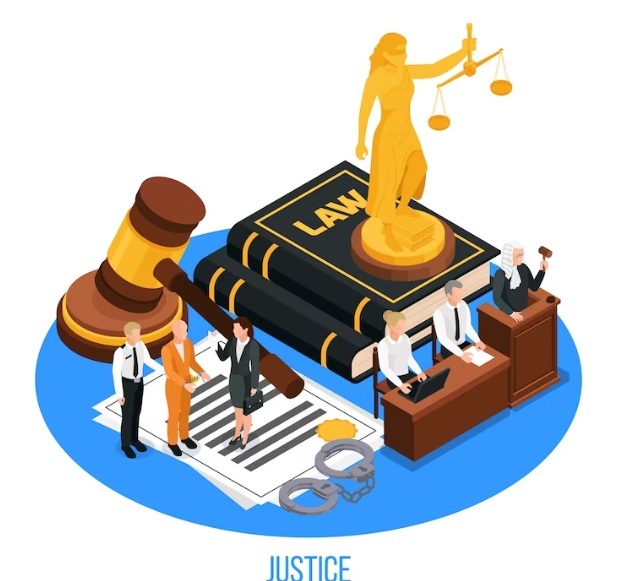Description
Advocates at Mera Vakeel specializing in recovery cases provide legal representation and services to clients who are seeking to recover outstanding debts or dues from individuals or businesses. Recovery cases typically involve pursuing legal action to recover unpaid loans, outstanding invoices, or other financial obligations. Here are some of the services typically provided by advocates in recovery cases:
Legal Consultation: Advocates at Mera Vakeeloffer initial consultations to understand the client's case and provide legal advice. They assess the details of the debt or dues, review relevant documents, and guide clients on the best course of action for recovery.
Debt Assessment and Recovery Strategy: Advocates at Mera Vakeelanalyze the debt or dues, assess its enforceability, and develop a tailored recovery strategy. They consider factors such as the amount owed, debtor's financial situation, applicable laws, and available legal remedies.
Demand Letters: Advocates at Mera Vakeeldraft and send formal demand letters on behalf of clients to the debtor, clearly stating the outstanding amount, the legal basis for the claim, and a deadline for payment. The demand letter serves as a formal notice and may encourage the debtor to settle the debt without litigation.
Negotiation and Settlement: Advocates at Mera Vakeelengage in negotiation with the debtor or their legal representatives to seek a settlement or payment plan. They advocate for their client's interests, aim to reach a mutually acceptable agreement, and ensure that the terms protect the client's rights.
Legal Notices: Advocates at Mera Vakeelprepare and send legal notices, such as statutory notices, to the debtor, emphasizing the legal consequences of non-payment and the intention to pursue legal action if necessary. The legal notice serves as a formal warning and may prompt the debtor to settle the debt to avoid litigation.
Debt Recovery Litigation: If negotiation and settlement attempts are unsuccessful, advocatesat Mera Vakeel initiate legal proceedings to recover the debt. They prepare and file the necessary legal documents, represent the client in court, present the case, introduce evidence, and advocate for the client's rights and entitlement to the outstanding amount.
Asset Tracing and Execution Proceedings: In cases where the debtor has concealed or transferred assets to avoid payment, advocates at Mera Vakeelassist in tracing the debtor's assets and initiating execution proceedings to enforce the court's judgment. They work with professional investigators and engage in asset recovery strategies to satisfy the debt.
Collection of Judgments: If a judgment is obtained in favor of the client, advocates at Mera Vakeelassist in the collection of the awarded amount. They employ various legal methods, such as garnishment, attachment, or seizure of assets, to recover the debt owed to the client as per the court's judgment.
Debt Recovery in Insolvency Cases: If the debtor is undergoing insolvency proceedings, advocates at Mera Vakeelassist clients in asserting their claims and recovering the outstanding amount within the framework of insolvency laws. They represent the client's interests in insolvency proceedings and explore avenues for debt recovery.
Legal Advice and Guidance: Advocates at Mera Vakeelprovide ongoing legal advice and guidance to clients throughout the recovery process. They explain the legal options, assess risks and benefits, discuss potential outcomes, and help clients make informed decisions regarding their case.
You may also like to know
What is debt recovery?
Debt recovery is the process of pursuing payments of debts owed by individuals or businesses. It is often carried out by a collection agency or a law firm acting on behalf of a creditor.
Can I be taken to court over unpaid debts?
Yes, if you fail to pay your debts, creditors can take legal action against you to recover the debt. This often involves going to court, where a judgment could be made against you, leading to actions like wage garnishment or property seizure.
How long can a debt be chased?
The length of time a debt can be pursued depends on the statute of limitations in your jurisdiction. After this period, the debt is considered 'time-barred,' but in many cases, the debt still exists and can affect your credit score.
What rights do I have when dealing with debt collectors?
Rights when dealing with debt collectors vary by jurisdiction, but often include: the right to be treated respectfully, the right to privacy, the right to be informed of the debt in writing, and the right to dispute the debt. Some jurisdictions restrict when and how often a collector can contact you.
What is a debt recovery letter?
A debt recovery letter, often called a demand letter, is a formal letter sent by a creditor or collection agency to a debtor. It outlines the details of the debt, including the amount owed, the origin of the debt, and a demand for payment.
What happens if I ignore a debt recovery letter?
Ignoring a debt recovery letter can lead to escalated action from the creditor, including taking the matter to court. This can result in additional costs, like legal fees, and might lead to enforcement actions like wage garnishment, a lien on your property, or seizure of assets.
How can I settle a debt recovery issue?
If you can't afford to pay the full debt, many creditors will accept a payment plan or a reduced lump sum payment. If you dispute the debt, you may need to provide proof. It's often advisable to get legal advice if you're dealing with significant debt recovery issues.

